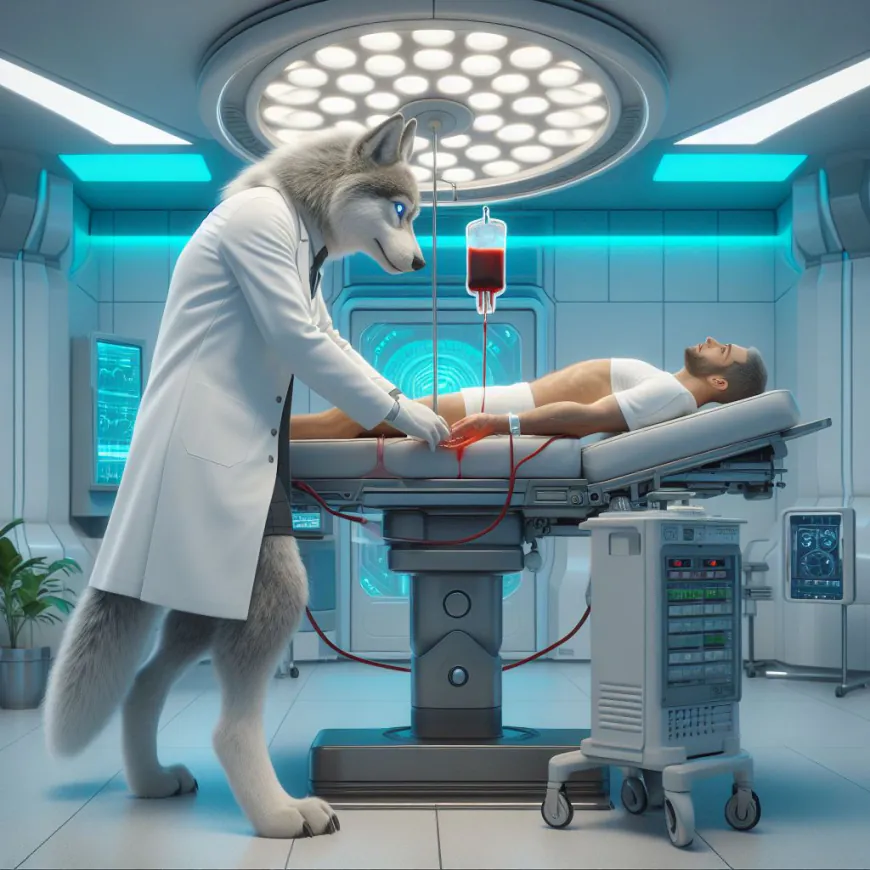Do Animals Have Different Blood Types? Can Animal Blood Be Transferred To Humans?
Animal Blood Types: What Happens When Humans Need It?

Do Animals Have Different Blood Types? What Happens When Animal Blood Is Transfused to Humans?
Introduction
Blood types are a fascinating aspect of biology, not limited to humans alone. While we often associate blood types with our own species, animals also exhibit variations in their blood compositions. In this article, we’ll explore the existence of blood types in animals, the potential consequences of transfusing animal blood into humans, and the intriguing world of cross-species blood compatibility.
Understanding Blood Types
Human Blood Types
Before delving into the animal kingdom, let’s briefly revisit human blood types. Our blood is classified into four main groups: A, B, AB, and O. These designations are based on the presence or absence of specific antigens on the surface of red blood cells. Additionally, the Rh factor (positive or negative) further refines our blood type.
Animal Blood Types
Just like humans, animals exhibit diverse blood types. However, the specifics vary significantly across species. Some animals have blood types analogous to ours, while others have unique systems. Here are a few examples:
-
Dogs: Canine blood types are categorized as DEA (Dog Erythrocyte Antigen) systems. DEA 1.1, DEA 1.2, and DEA 7 are common blood types in dogs. Transfusing incompatible blood can lead to severe reactions.
-
Cats: Feline blood types are classified as A, B, and AB. Cats with type B blood can experience life-threatening reactions if given type A blood.
-
Horses: Equine blood types include A, C, and Q. Mismatched transfusions can cause hemolysis (destruction of red blood cells).
-
Cattle: Bovine blood types are denoted by letters (e.g., J, L, Z). Compatibility matters during blood transfusions.
Transfusing Animal Blood to Humans
Challenges and Risks
Transfusing animal blood into humans is rarely done due to several challenges:
-
Antibodies: Our immune system recognizes foreign proteins. Transfusing animal blood can trigger an immune response, leading to hemolysis and other complications.
-
Compatibility: Even within species, compatibility matters. Transfusing blood from a different species increases the risk of adverse reactions.
-
Zoonotic Diseases: Animals carry diseases that may not affect them but can harm humans. Transfusions could introduce zoonotic pathogens.
Historical Cases
-
Lamb Blood: In the 17th century, a French physician transfused lamb’s blood into a young man. The man survived, but this practice fell out of favor due to risks.
-
Monkey Blood: In the early 20th century, monkey blood was experimented with, but results were mixed. Some patients improved, while others suffered severe reactions.
Modern Research
-
Xenotransplantation: Scientists explore xenotransplantation (transplanting animal organs into humans). Pig hearts, for instance, have been considered.
-
Blood Substitutes: Researchers work on synthetic blood substitutes to avoid cross-species transfusions.
Conclusion
While animal blood transfusions to humans remain rare and experimental, understanding blood types across species enhances our knowledge of biology. As we continue to unravel the mysteries of blood compatibility, we appreciate the intricate web connecting all living beings.
Remember, the next time you ponder blood types, it’s not just about humans—it’s about the entire animal kingdom.
What's Your Reaction?







































